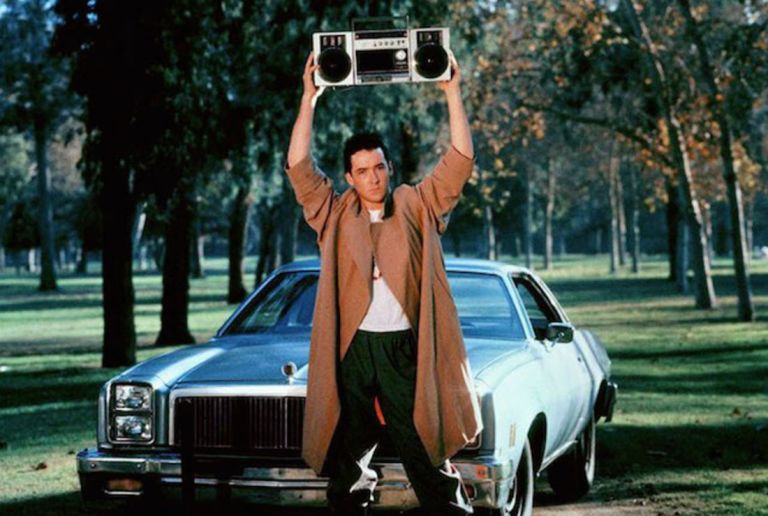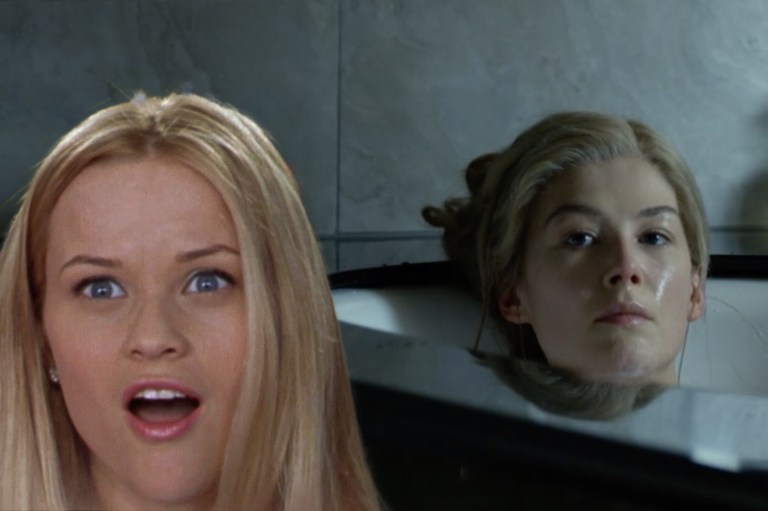
Don’t Follow Your Passion, It’s What’s Holding You Back

“The best lack all conviction, while the worst / Are full of passionate intensity.” — William Butler Yeats
Passion—it’s all about passion. Find your passion. Live passionately. Inspire the world with your passion.
People go to Burning Man to find passion, to be around passion, to rekindle their passion. Same goes for TED and the now enormous SXSW and a thousand other events, retreats, and summits, all fueled by what they claim to be life’s most important force.
Here’s what those same people haven’t told you: your passion may be the very thing holding you back from power or influence or accomplishment. Because just as often, we fail with—no, because of—passion.
Early on in her ascendant political career, a visitor once spoke of Eleanor Roosevelt’s “passionate interest” in a piece of social legislation. The person had meant it as a compliment. But Eleanor’s response is illustrative. “Yes,” she did support the cause, she said. “But I hardly think the word ‘passionate’ applies to me.”
As a genteel, accomplished, and patient woman born while the embers of the quiet Victorian virtues were still warm, Roosevelt was above passion. She had purpose. She had direction. She wasn’t driven by passion, but by reason.
George W. Bush, Dick Cheney, and Donald Rumsfeld, on the other hand, were passionate about Iraq. Christopher McCandless was bursting with passion as he headed “into the wild.” So was Robert Falcon Scott as he set out to explore the arctic, bitten as he was with “the Pole mania” (as were many climbers of the tragic 1996 Everest climb, momentarily struck with what psychologists now call “goalodicy”). The inventor and investors of the Segway believed they had a world changing innovation on their hands and put everything into evangelizing it. That all of these talented, smart individuals were fervent believers in what they sought to do is without dispute. It’s also clear that they were also unprepared and incapable of grasping the objections and real concerns of everyone else around them.
Passion in this sense is just ego. Pure and plain destructive ego. It’s self-absorption at the expense of reality.
It’s a disease caught by countless entrepreneurs, authors, chefs, business owners, politicians, and designers that you’ve never heard of—and never will hear of, because they sunk their own ships before they’d hardly left the harbor. Like every other dilettante, they had passion and lacked something else.
To be clear, I’m not talking about caring. I’m talking about passion of a different sort—unbridled enthusiasm, our willingness to pounce on what’s in front of us with the full measure of our zeal, the “bundle of energy” that our teachers and gurus have assured us is our most important asset. It is that burning, unquenchable desire to start or to achieve some vague, ambitious, and distant goal. This seemingly innocuous motivation is so far from the right track it hurts.
Remember, “zealot” is just a nice way to say “crazy person.”
A young basketball player named Lewis Alcindor Jr., who won three national championships with John Wooden at UCLA, used one word to describe the style of his famous coach: “dispassionate.” As in not passionate. Wooden wasn’t about rahrah speeches or inspiration. He saw those extra emotions as a burden. Instead, his philosophy was about being in control and doing your job and never being “passion’s slave.” The player who learned that lesson from Wooden would later change his name to one you remember better: Kareem AbdulJabbar.
No one would describe Eleanor Roosevelt or John Wooden or his notoriously quiet player Kareem as apathetic. They wouldn’t have said they were frenetic or zealous either. Roosevelt, one of the most powerful and influential female activists in history and certainly America’s most important First Lady, was known primarily for her grace, her poise, and her sense of direction. Wooden won ten titles in twelve years, including seven in a row, because he developed a system for winning and worked with his players to follow it. Neither of them were driven by excitement, nor were they bodies in constant motion. Instead, it took them years to become the person they became known as. It was a process of accumulation.
In our endeavors, we will face complex problems, often in situations we’ve never faced before. Opportunities are not usually deep, virgin pools that require courage and boldness to dive into, but instead are obscured, dusted over, blocked by various forms of resistance. What is really called for in these circumstances is clarity, deliberateness, and methodological determination.
But too often, we proceed like this . . .
A flash of inspiration: I want to do the best and biggest ______ ever. Be the youngest ______. The only one to ______. The “firstest with the mostest.”
The advice: Okay, well, here’s what you’ll need to do step by step to accomplish it.
The reality: We hear what we want to hear. We do what we feel like doing, and despite being incredibly busy and working very hard, we accomplish very little. Or worse, find ourselves in a mess we never anticipated.
Because we only seem to hear about the passion of successful people, we forget that failures shared the same trait. We don’t conceive of the consequences until we look at their trajectory. With the Segway, the inventor and investors wrongly assumed a demand much greater than ever existed. With the runup to the war in Iraq, its proponents ignored objections and negative feedback because they conflicted with what they so deeply needed to believe. The tragic end to the Into the Wild story is the result of youthful naiveté and a lack of preparation. With Robert Falcon Scott, it was overconfidence and zeal without consideration of the real dangers. I’m sure Napoleon was brimming with passion as he contemplated the invasion of Russia and only finally became free of it as he limped home with a fraction of the men he’d so confidently left with. In many more examples we see the same mistakes: overinvesting, underinvesting, acting before someone is really ready, breaking things that required delicacy—not so much malice as the drunkenness of passion.
Passion typically masks a weakness. Its breathlessness and impetuousness and franticness are poor substitutes for discipline, for mastery, for strength and purpose and perseverance. You need to be able to spot this in others and in yourself, because while the origins of passion may be earnest and good, its effects are comical and then monstrous. Passion is seen in those who can tell you in great detail who they intend to become and what their success will be like—they might even be able to tell you specifically when they intend to achieve it or describe to you legitimate and sincere worries they have about the burdens of such accomplishments. They can tell you all the things they’re going to do, or have even begun, but they cannot show you their progress. Because there rarely is any.
How can someone be busy and not accomplish anything? Well, that’s the passion paradox. If the definition of insanity is trying the same thing over and over and expecting different results, then passion is a form of mental retardation—deliberately blunting our most critical cognitive functions. The waste is often appalling in retrospect; the best years of our life burned out like a pair of spinning tires against the asphalt.
Dogs, god bless them, are passionate. As numerous squirrels, birds, boxes, blankets, and toys can tell you, they do not accomplish most of what they set out to do. A dog has an advantage in all this: a graciously short short term memory that keeps at bay the creeping sense of futility and impotence.
Reality for us humans, on the other hand, has no reason to be sensitive to the illusions we operate under. Eventually it will intrude.
What humans require in our ascent is purpose and realism. Purpose, you could say, is like passion with boundaries. Realism is detachment and perspective.
When we are young, or when our cause is young, we feel so intensely—passion like our hormones runs strongest in youth—that it seems wrong to take it slow. This is just our impatience. This is our inability to see that burning ourselves out or blowing ourselves up isn’t going to hurry the journey along.
Passion is about. (I am so passionate about ______.) Purpose is to and for. (I must do ______. I was put here to accomplish ______. I am willing to endure ______ for the sake of this.) Actually, purpose deemphasizes the I. Pur pose is about pursuing something outside yourself as opposed to pleasuring yourself.
More than purpose, we also need realism. Where do we start? What do we do first? What do we do right now? How are we sure that what we’re doing is moving us forward? What are we benchmarking ourselves against?
“Great passions are maladies without hope,” as Goethe once said. Which is why a deliberate, purposeful person operates on a different level, beyond the sway or the sickness. They hire professionals and use them. They ask questions, they ask what could go wrong, they ask for examples. They plan for contingencies. Then they are off to the races. Usu ally they get started with small steps, complete them, and look for feedback on how the next set can be better. They lock in gains, and then get better as they go, often leveraging those gains to grow exponentially rather than arithmetically.
Is an iterative approach less exciting than manifestos, epiphanies, flying across the country to surprise someone, or sending four thousand word stream of consciousness emails in the middle of the night? Of course. Is it less glamorous and bold than going all in and maxing out your credit cards because you believe in yourself? Absolutely. Same goes for the spreadsheets, the meetings, the trips, the phone calls, software, tools, and internal systems—and every howto article ever written about them and the routines of famous people. Passion is form over function. Purpose is function, function, function.
The critical work that you want to do will require your deliberation and consideration. Not passion. Not naïvete. It’d be far better if you were intimidated by what lies ahead—humbled by its magnitude and determined to see it through regardless. Leave passion for the amateurs. Make it about what you feel you must do and say, not what you care about and wish to be. Remember Talleyrand’s epigram for diplomats, “Surtout, pas trop de Zèle” (“Above all, not too much zeal”). Then you will do great things. Then you will stop being your old, good intentioned, but ineffective self. ![]()











